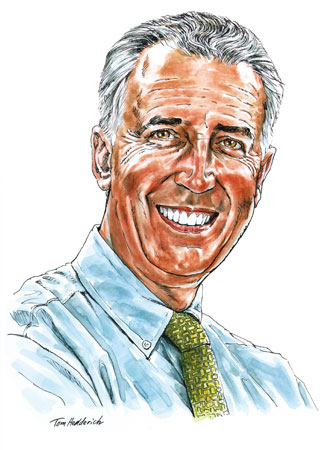The general press tends to look into the writers’ rooms instead of the C-suites to understand the “Big Changes [that] Are Coming to Hollywood” (as reported by the Wall Street Journal). C-suite execs were caught by surprise by the challenges posed by streaming platforms. People with common sense and those in the E-suites (trade Editorial) knew otherwise, and had been pointing out streaming’s pitfalls for years.

During a “refreshing” talk with a former major U.S. studio executive, we at VideoAge found out that C-suite honchos in Hollywood were “surprised” by the challenges posed by the streaming business.
The talk was “refreshing” because it was like an unexpected cold shower for us, as the bit about the “surprise” came as a bolt out of the blue.
We’re journalists, so basically we don’t really know anything, and rely on the knowledge and tolerance of the people we interview so that we can write informative articles. C-suite executives, on the other hand, have all kinds of info — from the likes of financial insiders, researchers, analysts, and futurists. So how can they have been surprised if as early as 2017 VideoAge was writing about the unsustainable business model that streaming services had? (For example, “People Who Get Rid of Cable TV Might Not Save Money,” June 2017, and “Netflix’s Success on Wall Street and Main Street is Not Reflected on Balance Sheets,” October 2017.)
In those articles — and others like them — we pointed out that C-suite executives created their own challenges when they started selling their best TV series and movies to Netflix, making the service very popular and a fierce competitor to both FTA networks and, later, their own streaming platforms.
“Yes, but we made lots of money [by licensing rights to Netflix],” was the answer. So the surprise was in reality a calculated risk. In that case, we should revive the expression that a “good capitalist is someone who sells for lots of money the rope with which they’ll be hanged.”
“That’s because,” said the former studio exec, “corporations nowadays care more about making money right now, than in the future.”
Ah!, and here is another C-suite contradiction: If making the next quarter great again was the modus operandi, why then did each studio give up $5 billion a year (some even more) in international sales hoping to strike gold in the future by reserving the content exclusively for their platforms, which were losing money?
The same unfortunate decisions were made with regard to siphoning off the best content from their broadcast networks to their streaming platforms. This move accelerated cord-cutting, resulting in a reduction of ad revenue and retrans fees, without making the streaming platforms profitable.
Then, in VideoAge Daily at MIPCOM 2018, we pointed out how Wall Street “is forcing production models to change to the point that producers now need money up front to produce, since today’s content needs to arrive fully financed.” This is the model developed by Netflix.
So, in conclusion, there should be no surprises, only cold showers in the C-suites!
(By Dom Serafini)
Audio Version (a DV Works service)

Leave A Comment